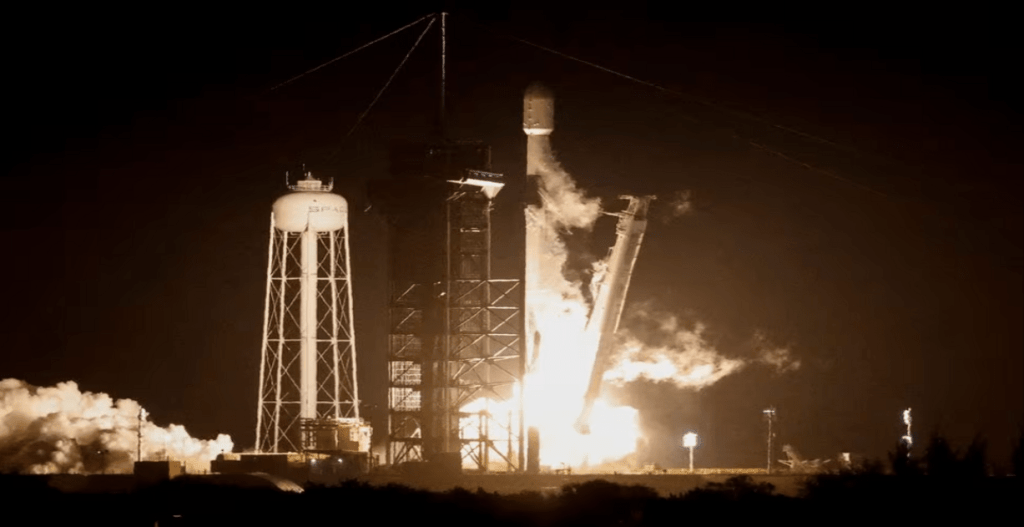Breaking Barriers: Private US Moon Lander Launches into History

A moon lander crafted by Intuitive Machines, an aerospace company based in Houston, took off from Florida on Thursday for its mission to carry out the United States’ first lunar touchdown in over fifty years. SpaceX’s Falcon 9 rocket, led by Elon Musk, successfully carried the company’s Nova-C lander, known as Odysseus, from NASA’s Kennedy Space Center in Cape Canaveral. Cheers rang out as the rocket soared into the sky, leaving a trail of fiery exhaust behind. Shortly after launch, at around 139 miles above Earth, the lander was detached from Falcon 9’s upper stage and gently floated away towards the moon. “IM-1 Odysseus lunar lander separation confirmed,” a mission controller proclaimed. Meanwhile, in Houston, mission operations teams eagerly awaited the first signals from the lander, signaling that it had safely powered up its systems and aligned itself in space. This particular mission, although led by Intuitive Machines, includes six NASA payloads meant to collect valuable data about the lunar environment in preparation for NASA’s upcoming manned lunar missions. Just a month prior, Astrobotic Technology’s lunar lander experienced a propulsion system leak on its way to the moon. This recent achievement stands in stark contrast to the setbacks faced by other private companies attempting lunar landings, with previous attempts from companies in Israel and Japan falling short of a “soft landing” on the lunar surface.
NASA’s reliance on the commercial sector for its spaceflight goals has been highlighted by recent mishaps. These incidents serve as a reminder of the risks involved in leaning heavily on private companies. However, despite these challenges, NASA remains determined to push forward with its plans.
One such plan involves the Odysseus spacecraft, which is set to make a weeklong journey to the moon’s south pole, with a planned landing on February 22nd at crater Malapert A. If successful, this mission will mark the first controlled descent to the lunar surface by a U.S. spacecraft since the Apollo missions in 1972, and it will also be the first time a private company achieves this feat.
This milestone will not only be a significant achievement for the private sector but also a crucial step in NASA’s Artemis moon program. With China also aiming to land its own crewed spacecraft on the moon, there is a race to return astronauts to Earth’s natural satellite. NASA’s strategy of partnering with private companies to reduce costs is being put to the test with missions like Odysseus.
In the past, NASA would purchase rockets and technology from the private sector but would own and operate them itself. However, the Artemis missions are taking a different approach by utilizing spacecraft built and owned by private companies. This shift in strategy is aimed at slashing costs and paving the way for future human exploration of Mars.
While NASA has recently announced a delay in its target date for a crewed Artemis moon landing, pushing it to late 2026, China has set its sights on 2030. In the meantime, smaller landers like Nova-C will be deployed to survey the lunar landscape, its resources, and potential hazards. Odysseus, on the other hand, will focus on studying space weather interactions, radio astronomy, precision landing technologies, and navigation.
The lunar south pole will see more activity in the coming years, with Intuitive Machine’s IM-2 mission scheduled for 2024, followed by an IM-3 mission later in the same year, which will include several small rovers. Other countries have also made their mark on the moon, with Japan achieving a precise landing with its SLIM probe last month, becoming the fifth nation to do so. India, too, joined the ranks last year, while Russia faced a failed attempt. As NASA continues to navigate the challenges and risks associated with relying on the commercial sector, the future of space exploration holds great promise.


